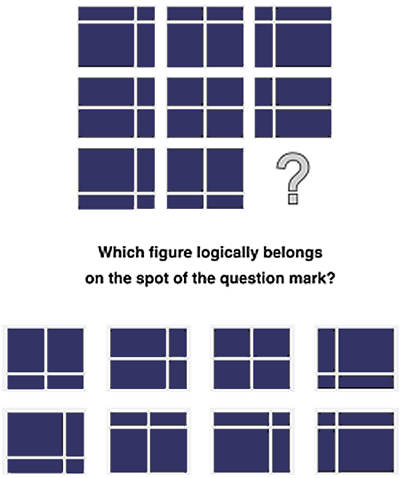IQ (General Mental Ability) Tests
Intelligence tests also known as Intelligence Quotient (IQ) or General Mental Ability (GMA) tests, have been researched for nearly 100 years and there is substantial research behind these tests which tap into a person's intelligence level, ability to quickly assimilate new information, and ability think on one's feet and solve problems.
Research has consistently shown IQ or GMA tests are the most predictive tests for on-the-job performance, training performance and career success (Schmidt & Hunter, 2004; Schmidt, Oh & Shaffer, 2016). This research found IQ tests were even more predictive of on-the-job performance than previous experience, interviews, years of education and any other selection method.
GMA (IQ) tests showed any overall predictive validity for on-the-job performance across all job levels of .65 and for training performance of .67. No other selection method comes close to the predictive power of GMA (IQ) tests.
Hunter, Schmidt & Le (2006) found GMA predictive validity for on-the-job performance ranged from .74 for professional and managerial jobs down to .39 for unskilled jobs.

Schmidt (2011) also showed that the predictive validity of GMA (IQ) tests for on-the-job performance was higher than that of specific aptitude tests, even when those specific aptitudes are chosen to match important aspects of the job (such as spatial perception for mechanical jobs or numerical reasoning for financial jobs).
If you do not have an IQ or GMA test as part of your selection testing battery then your organisation is not using the assessment method that has greatest scientifically proven utility to improve the quality and performance or your new hires.
At Niche we recommend the following IQ (GMA) tests which we have used for over many years and are perhaps the best known IQ tests used in an occupational setting:
Wonderlic Personnel Test (WPT)
The Wonderlic Personnel Test is a measure of IQ or general mental ability (GMA). Sometimes referred to as general intelligence or “g” cognitive ability is a term that is used to describe the level at which an individual learns, understands instructions and solves problems. It provides quantitative insight into how easily individuals can be trained and how well they can adjust and solve problems on their feet.
Higher scoring individuals will not only gain more from training, but they are also more likely to learn effectively from on-the-job experience. Modest scoring individuals need more detailed instructions, hands on practice, more time and repetition and close supervision.
The Wonderlic IQ test will not tell you how well a person will employ their ability. It is often true that a person of lower IQ but stronger determination, will outperform a higher IQ person. Someone who is very bright but has low motivation is not likely to perform well. As such many elements of a person’s abilities, personal characteristics, learned skills and experience will all contribute to successful on-the-job performance.

This test has been in use and researched for over 70 years. It is a good measure of both fluid and crystallised intelligence. Items include general knowledge, verbal, numeric and diagrammatic problems.
This test can be administered online and unsupervised. The test is 12 minutes in length and contains 50 test items, although it is designed so most people cannot finish the test. This test does require a basic level of literacy to answer most test items.
There is an online parallel version to allow for retesting should issues occur (such as power outage in the middle of the test) or to verify the result. Niche Consulting has developed extensive NZ business norms for this test, in addition to the test publisher’s norms.
Raven’s Standard Progressive Matrices
This test has been in use and researched for over 50 years and is a good measure of fluid intelligence. All the items are diagrammatic problems, so only abstract reasoning skills are being assessed.
The Raven’s IQ test is particularly useful in assessing the ability to perceive, understand and grasp complex relationships in confusing situations. This IQ ability test provides an insight into an individual’s potential for training, learning and on the job problem solving.
This test can be administered untimed or timed - we prefer timed at 20 minutes in length however administration needs to be supervised. There are 60 test items which get progressively more difficult. Unfortunately this test is only able to be administered in a supervised setting.

In jobs where literacy may be an issue this test will give a good idea of intellect which is not related to education level nor having a good understanding of English. Niche Consulting has developed a NZ business norm for this test, in addition to the test publisher’s norms.
The ACER Test of Abstract Reasoning (TAR)
The ACER Test of Abstract Reasoning (TAR) – Short Form is an assessment of non-verbal abstract reasoning and designed for use with candidates for professional and managerial level positions. TAR assesses an individual’s ability to use abstract reasoning skills and is a measure of general ability.
The Test of Abstract Reasoning is a measure of general cognitive ability for positions which require a moderate to high level of abstract reasoning and where the ability to think clearly and solve problems is important.
This test can be administered online in an unsupervised setting. It is comprised of 45 multiple-choice items with a 20 minute time limit. It is designed for the leader, professional and executive level.
In jobs where literacy may be an issue this test will give a good idea of intellect which is not related to education level nor having a good understanding of English.
